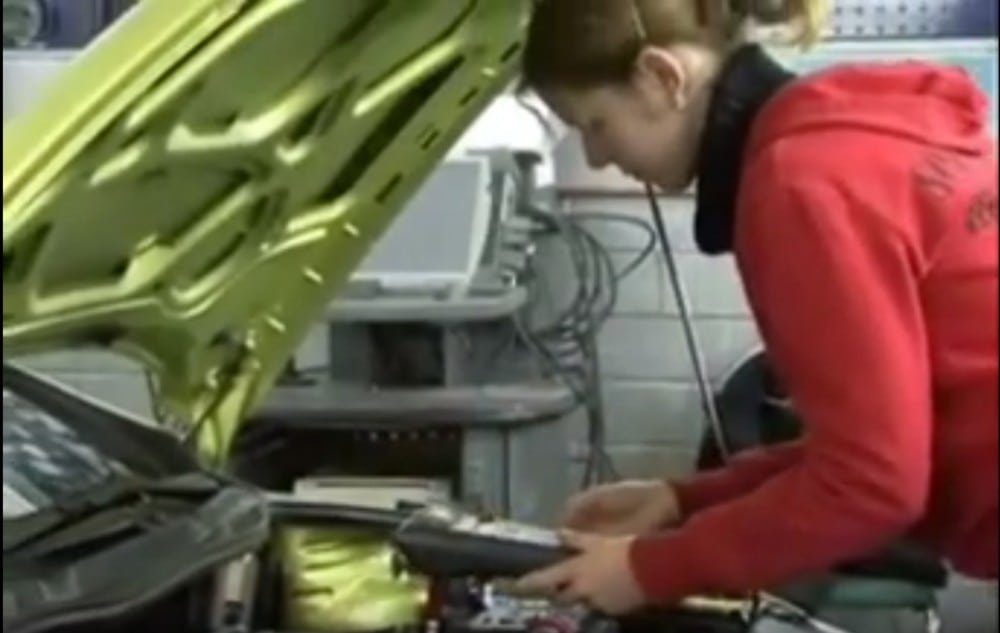Swinton research reveals that more than a quarter of British motorists avoid basic car maintenance tasks – three quarters would leave standard maintenance checks to a mechanic, rather than checking themselves.
With that in mind, we’ve pulled out the top five problem areas faced by UK drivers and developed some handy tips on what you can do to make sure you avoid a sticky and costly situation.
Key stats:
· More than 75% of Brits would leave it to a mechanic to do all standard maintenance checks on their vehicle
· Almost a third of British motorists have never carried out basic maintenance tasks on their car before (28%)
· More than 30% of UK drivers don’t feel confident enough to change a tyre
· Ten per cent of motorists are unable to identify warning lights on their car’s dashboard
· One in ten drivers do not feel 100 per cent confident when it comes to filling up their petrol tank
· More than 10% don’t have the confidence to check their own tyre pressure
What can go wrong and how you can fix it:
1. Oil runs out unexpectedly – half of motorists don’t feel confident changing oil themselves
If your oil runs out, the engine will start to overheat and the increased friction can cause permanent damage. You can avoid the panic by checking the oil dipstick at least once a fortnight. Simply find the bright handle labelled ‘Engine Oil’, remove the stick and wipe clean, place it back into the pipe, pull out once more and check where the oil film comes up to.
2. Flat tyre and no spare – a third of UK drivers feel uncomfortable changing a tyre
One of the most common car nuisances, a flat tyre can seriously hinder your journey. If you aren’t able to use your spare, handy repair kits are available from most auto parts stores and include a can of clever sealant which can temporarily seal any holes until you can get to a garage. Be sure to keep one of these in your car boot at all times and try to get into the habit of checking your tyre pressure regularly.
3. Empty screen wash – almost one in ten don’t feel confident filling their wiper fluid
Having enough washer fluid in the tank is important for safe driving, especially if you
drive long distances often. Most screen wash caps are marked with a windscreen wiper symbol, so just unscrew the cap and fill with a mixture of water and screen wash fluid – your owner’s manual will contain instructions on mixing the right proportions.
4. No more engine coolant – more than a third of motorists would ask a mechanic to check their coolant levels
It may be the last thing on your mind but checking the coolant levels in your car is extremely important as it prevents your engine from overheating and will stop the inside of your system rusting. Your driver manual will talk you through how to do this on your car model.
5. Dead battery – two thirds of motorists would go straight to a mechanic about battery issues
Preparation is key when it comes to a dead battery. Always ensure you have a set of jump leads in your car and carry out regular checks on your battery voltage with the multimeter under your bonnet. Key tell-tale signs of a battery that’s about to die are dim headlights and trouble starting the engine in the morning.
Expert comment:
Steve Murphy, Head of Insurer Development at Swinton Insurance
“Clearly more needs to be done to educate Britain’s motorists on the basic principles of car maintenance. And it’s not just new drivers, as many might assume, that need to brush up on their skills. Our research shows a gap in knowledge across all ages.
“We know the prospect of fixing your own car can be daunting and getting it wrong can be costly and potentially dangerous. But in the winter it’s even more important to make sure you’re as safe as possible on the roads. This is why we launched our Tips from the Trades online hub, to help more people undertake simple maintenance tasks.
“Of course the need for professionals is always going to exist, and there are some tasks only experts should handle. It’s vital that when you do hire an expert you ensure they are a qualified mechanic – if not, you run the risk of causing damage to your vehicle and potentially being at greater risk of causing an accident in the event something does go wrong.”











